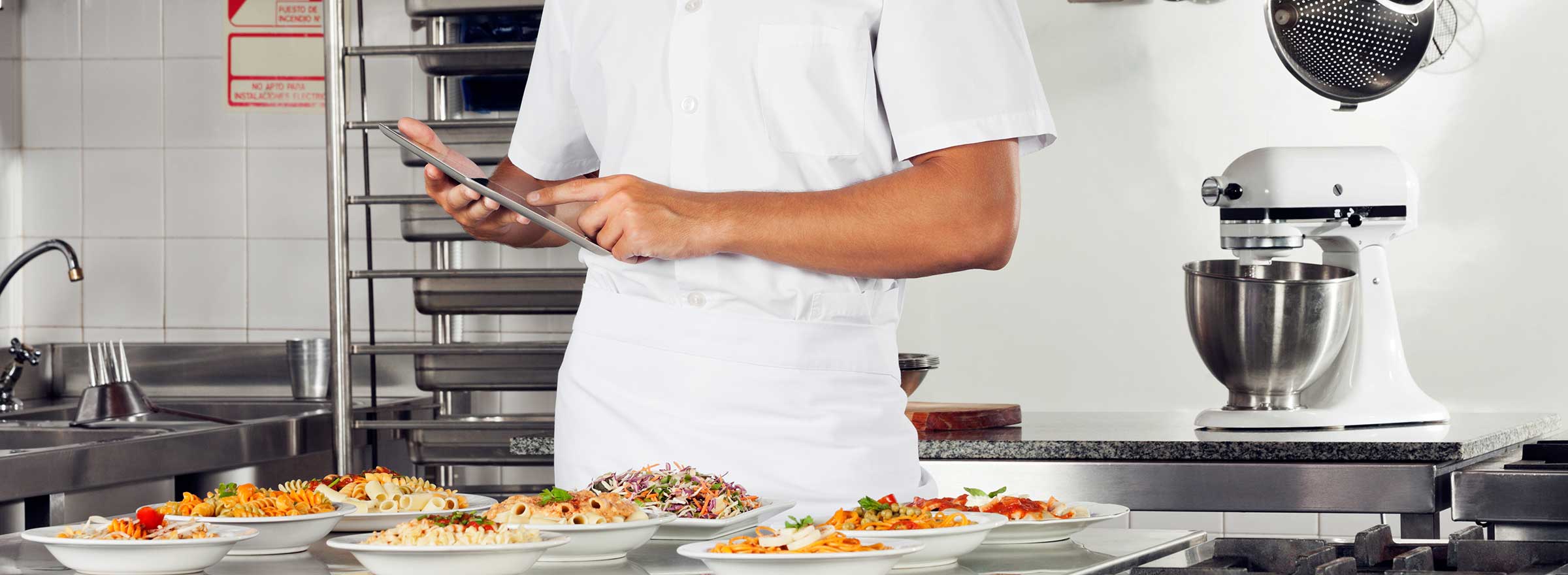Owning a restaurant means being a jack-of-all-trades: knowledgeable about food trends, menu development, ordering, marketing, building maintenance, regulatory compliance, providing exceptional customer service, and leading a team of employees.
For many restaurant owners, HR issues can fall to the bottom of a long list of more pressing issues; but ultimately this costs the restaurant money: from making a bad hire, to poor training, and even potential legal issues.
It Starts with Hiring

Recruiting and onboarding staff is the single most important component of HR. For that reason, this may be the best area to focus your attention while outsourcing other elements to third party providers as needed. It’s essential to always be prepared for hiring new staff, with turnover rates and the need for seasonal labor being so much higher in the restaurant industry.
- Create job descriptions for every position in your restaurant
- Consider where you will have the best luck with recruitment. Is it a free community website like Craigslist or a paid resource? What materials do applicants need to provide; resume, cover letter, application?
- Create an employee referral program to encourage existing staff to refer qualified applicants.
- Determine what your screening and interviewing process will look like in advance.
- Will you perform background screenings and drug tests?What are the costs and benefits if you do?
- Will you conduct interviews in one day or over a longer period of time?
- What exactly will the interview process look like? Do you want to see chefs cook on the line or servers and hosts shadow other staff before hiring?
If you can take the time to outline these policies in advance, the regular work of hiring and onboarding new staff will be easier than if you wait to do so when the need arises.
Proper Training Saves Money
Training is another essential area of HR, and good training can mean the difference between retaining competent staff and an endless cycle of quick turnover. By putting tools in place in advance here as well, it's possible to reduce the amount of time and energy it takes to train new staff. Here are some of the common tools you’ll need:
Employee Handbook
Your employee handbook should align with the mission of your business. If you don’t have a clear understanding of who you are as a business—your values and goals—creating a clear, useful employee handbook will be much more difficult. This is a good opportunity to take a look at the big picture of your business. Start identifying what is important to you when it comes to your staff and what policies are essential to smooth, consistent service and a great experience for your customers. There are resources online for creating employee handbooks, like the National Restaurant Association’s Tips for Creating an Employee Handbook and through organizations like local chambers of commerce. Start there and then customize your handbook based on your own experience and needs. Make sure new hires sign a receipt for their copy, and consider testing them on its contents to make sure they’ve read and understood it.
Training Manual
The training process should look basically the same for everyone you hire. It starts with what's in your handbook and then dives into the specifics of the position for which that person has been hired. This is the time to make sure the staff understands the chain of command and how to address any potential issues. It can be useful to have management take a leading role in the training process so that new staff become familiar with the management style. Make sure your managers are reporting back to you about successes and challenges when training new staff.
Recipe Book
Take the time to standardize the recipes you use most often, from salad dressings to desserts, and everything in between. This is an often overlooked step that results in inconsistency in the kitchen and makes it nearly impossible to set up new hires for success. Creating consistent recipes doesn't eliminate chefs' creativity but it does create a framework for them to do so in a way that doesn't waste money. It also creates a better experience for guests who expect and appreciate consistency.
Server Script
Creating a consistent ‘script’ for FOH staff to use is as important as creating a recipe book for your BOH staff. This sets the tone of interaction for every customer, making sure staff speaks for you the way you want them to. While it’s important to equip FOH staff to be flexible and empowered to make decisions on the fly, training them on this tool can help them learn the values and goals of your business before they go ‘off-script’ on their own. When creating a server script, consider how to greet customers, answer menu questions and share specials, address common issues, and thank customers.

 Evaluate Regularly and Compensate Accordingly
Evaluate Regularly and Compensate Accordingly
Once you have a great, well-trained staff, the next step is providing regular evaluation and competitive compensation.
- Schedule evaluations quarterly or at regular intervals. Peer and managerial evaluations can provide different types of insight into the successes and challenges of specific staffers.
- Note any challenges or issues with staff in writing. This is extremely important if you need to take action, such as firing, in the future.
- Reward staff with bonuses and other incentives to show your appreciation for the hard work they do.
- Create a competitive compensation structure that includes employee benefits such as insurance, meal plans, and paid time off. This is often one of the biggest reasons why restaurant employees, even happy ones, leave their jobs. An investment in your staff shows that you value them and want them to remain a part of your business.
- Establish payroll to make sure staff are paid fairly and on time, every time. "The FLSA (Fair Labor Standards Act) is a complex law that sets the policies for wages and hours worked which most US employers need to comply to. Many restaurants have a difficult time keeping track of compliance and are especially at risk of violating FLSA because of the long hours and lower wages for restaurant workers. Compliance mistakes can make you liable for taxes, penalties, back wages, and legal fees.” (stratex.com) Due to the complex regulations and the extensive time this can take up in your busy schedule, it may be best to outsource payroll to a third party.
Keeping Your Staff Safe
It’s your responsibility to keep your staff safe, and increasingly, restaurateurs are learning that this means both physically safe as well as emotionally and intellectually safe.
- Provide access to ServSafe certification for management and designated food handlers.
- Establish safety protocols for all staff in your employee handbook.
- Create and train on policies that establish your business as a safe place for all people to work.
- Be clear about expectations regarding harassment. Permissiveness in this area leads to low employee morale and a loss of respect for the chain of command. Make sure staffers know where you stand. This goes back to establishing your values and goals in your employee handbook. It’s important to revisit these issues from time to time to make sure staff continues to recognize their importance to you as the business owner.
When to Outsource
Determine which elements of HR are the most important to you and which you are capable of doing. As discussed, the hiring process is so specific, it may be best to keep this in-house. Payroll, on the other hand, is a time-consuming process that has an extensive regulatory component that might be best managed by experts. Continue to seek training for yourself around best practices no matter who handles your HR issues. Ultimately they are your responsibility, and falling behind on proper compensation and labor practices can be costly in the long run. Plus, being proactive and providing a safe and encouraging professional atmosphere can foster the type of climate that leads to having exceptional long-term employees, and that’s a huge benefit for any restaurateur.



